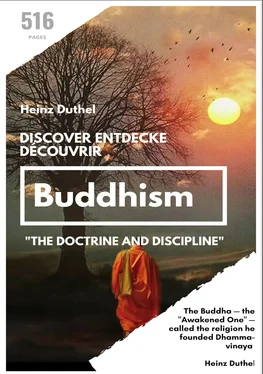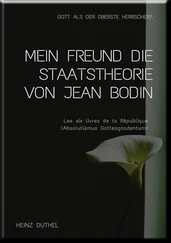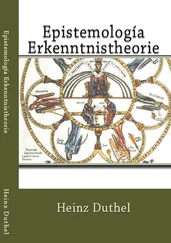— Ud 8.1
"Both formerly & now, it is only stress (dukkha) that I describe, and the cessation of stress."
— SN 22.86
The Buddha is one-of-a-kind
As he was sitting there, [Moggallana the Guardsman] said to Ven. Ananda: "Master Ananda, is there any one monk endowed in each & every way with the qualities with which Master Gotama — worthy & rightly self-awakened — was endowed?"
"No, brahman, there isn't any one monk endowed in each & every way with the qualities with which the Blessed One — worthy & rightly self-awakened — was endowed. For the Blessed One was the arouser of the unarisen path, the begetter of the unbegotten path, the expounder of the unexpounded path, the knower of the path, the expert with regard to the path, adept at the path. And now his disciples follow the path and become endowed with it after him."
— MN 108
...and his reputation spreads
"A monk called Gotama, it seems, a son of the Sakyans who went forth from a Sakyan clan, has been wandering in the Kosalan country with a large Sangha of bhikkhus and has come to Sala. Now a good report of Master Gotama has been spread to this effect: 'That Blessed One is such since he is arahant and Fully Enlightened, perfect in true knowledge and conduct, sublime, knower of worlds, incomparable teacher of men to be tamed, teacher of gods and humans, enlightened, blessed. He describes this world with its gods, its Maras, and its (Brahma) Divinities, this generation with its monks and brahmans, with its kings and its people, which he has himself realized through direct knowledge. He teaches a Dhamma that is good in the beginning, good in the middle and good in the end with (the right) meaning and phrasing, he affirms a holy life that is utterly perfect and pure.' Now it is good to see such arahants."
— MN 41
He travels widely, teaching people from every caste and from all walks of life,
"I recall having approached many hundred assemblies of nobles... many hundred assemblies of brahmans... many hundred assemblies of householders... many hundred assemblies of recluses..."
— MN 12
...including lay-followers,
At one time the Lord was staying near Savatthi in the Jeta Grove at Anathapindika's monastery. Now the lay-follower Dhammika with 500 other lay-followers approached the Lord. Having drawn near and having saluted the Lord respectfully he sat down at one side. Sitting there the lay-follower Dhammika addressed the Lord...
— Sn 2.14
Dighajanu [LongShin; he also went by the name of TigerPaw] the Koliyan went to the Blessed One and, on arrival, having bowed down to the Blessed One, sat to one side. As he was sitting there he said to the Blessed One, "We are lay people enjoying sensuality; living crowded with spouses & children; using Kasi fabrics & sandalwood; wearing garlands, scents, & creams; handling gold & silver. May the Blessed One teach the Dhamma for those like us, for our happiness & well-being in this life, for our happiness & well-being in lives to come."
[The Blessed One said:] "There are these four qualities, TigerPaw, that lead to a lay person's happiness and well-being in this life. Which four? Being consummate in initiative, being consummate in vigilance, admirable friendship, and maintaining one's livelihood in tune.
"And what does it mean to be consummate in initiative? There is the case where a lay person, by whatever occupation he makes his living — whether by farming or trading or cattle tending or archery or as a king's man or by any other craft — is clever and untiring at it, endowed with discrimination in its techniques, enough to arrange and carry it out. This is called being consummate in initiative.
"And what does it mean to be consummate in vigilance? There is the case when a lay person has righteous wealth — righteously gained, coming from his initiative, his striving, his making an effort, gathered by the strength of his arm, earned by his sweat — he manages to protect it through vigilance [with the thought], 'How shall neither kings nor thieves make off with this property of mine, nor fire burn it, nor water sweep it away, nor hateful heirs make off with it?' This is called being consummate in vigilance.
"And what is meant by admirable friendship? There is the case where a lay person, in whatever town or village he may dwell, spends time with householders or householders' sons, young or old, who are advanced in virtue. He talks with them, engages them in discussions. He emulates consummate conviction in those who are consummate in conviction, consummate virtue in those who are consummate in virtue, consummate generosity in those who are consummate in generosity, and consummate discernment in those who are consummate in discernment. This is called admirable friendship.
"And what does it mean to maintain one's livelihood in tune? There is the case where a lay person, knowing the income and outflow of his wealth, maintains a livelihood in tune, neither a spendthrift nor a penny-pincher, [thinking], 'Thus will my income exceed my outflow, and my outflow will not exceed my income.' Just as when a weigher or his apprentice, when holding the scales, knows, 'It has tipped down so much or has tipped up so much,' in the same way, the lay person, knowing the income and outflow of his wealth, maintains a livelihood in tune, neither a spendthrift nor a penny-pincher, [thinking], 'Thus will my income exceed my outflow, and my outflow will not exceed my income.' If a lay person has a small income but maintains a grand livelihood, it will be rumored of him, 'This clansman devours his wealth like a fruit-tree eater [Commentary: one who shakes more fruit off a tree than he can possibly eat].' If a lay person has a large income but maintains a miserable livelihood, it will be rumored of him, 'This clansman will die of starvation.' But when a lay person, knowing the income and outflow of his wealth, maintains a livelihood in tune, neither a spendthrift nor a penny-pincher, [thinking], 'Thus will my income exceed my outflow, and my outflow will not exceed my income,' this is call maintaining one's livelihood in tune.
"These are the four drains on one's store of wealth: debauchery in sex; debauchery in drink; debauchery in gambling; and evil friendship, evil companionship, evil camaraderie. Just as if there were a great reservoir with four inlets and four drains, and a man were to close the inlets and open the drains, and the sky were not to pour down proper showers, the depletion of that great reservoir could be expected, not its increase. In the same way, these are the four drains on one's store of wealth: debauchery in sex; debauchery in drink; debauchery in gambling; and evil friendship, evil companionship, evil camaraderie.
These are the four inlets to one's store of wealth: no debauchery in sex; no debauchery in drink; no debauchery in gambling; and admirable friendship, admirable companionship, admirable camaraderie. Just as if there were a great reservoir with four inlets and four drains, and a man were to open the inlets and close the drains, and the sky were to pour down proper showers, the increase of that great reservoir could be expected, not its depletion. In the same way, these are the four inlets to one's store of wealth: no debauchery in sex; no debauchery in drink; no debauchery in gambling; and admirable friendship, admirable companionship, admirable camaraderie.
"These, TigerPaw, are the four qualities that lead to a lay person's happiness and well-being in this life.
"There are these four qualities that lead to a lay person's happiness and well-being in lives to come. Which four? Being consummate in conviction, being consummate in virtue, being consummate in generosity, being consummate in discernment.
"And what does it mean to be consummate in conviction? There is the case where a disciple of the noble ones has conviction, is convinced of the Tathagata's Awakening: 'Indeed, the Blessed One is worthy and rightly self-awakened, consummate in knowledge and conduct, well-gone, an expert with regard to the world, unexcelled as a trainer for those people fit to be tamed, the Teacher of divine and human beings, awakened, blessed.' This is called being consummate in conviction.
Читать дальше












